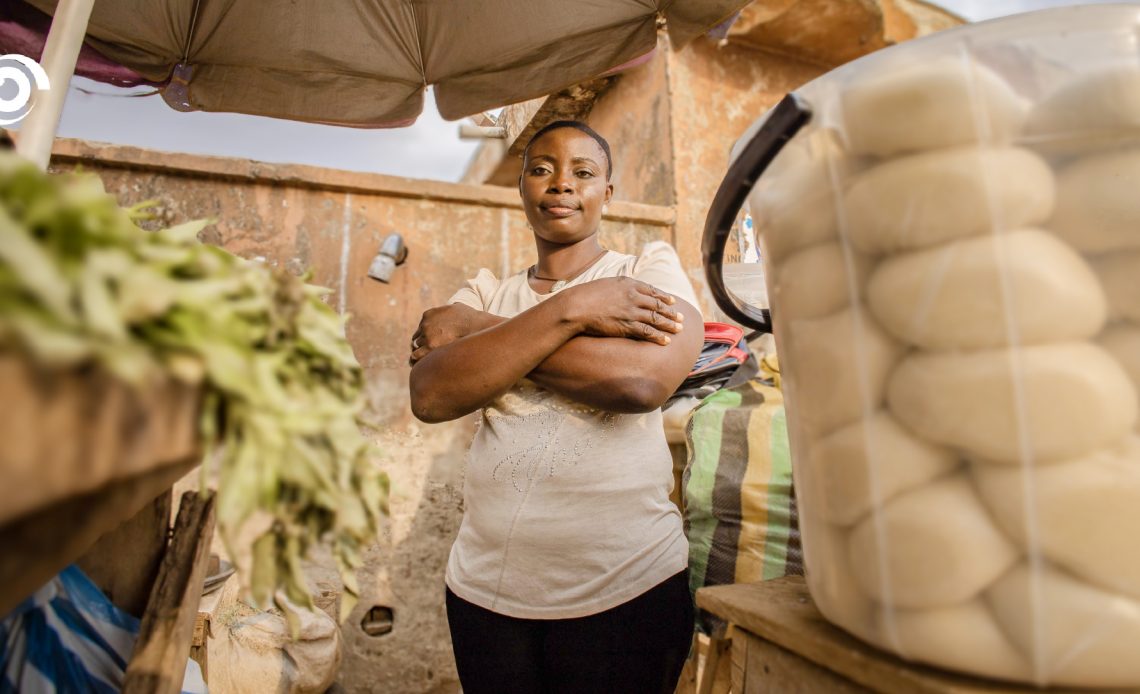By Asari Ndem and Ohanu Dabri Olohije (Lead Writers)
“Show a people as one thing, as only one thing, over and over again, and that is what they become.”- Chimamanda Adichie
Last year, on International Women’s Day (IWD), Nigeria’s House of Representatives announced that it had rescinded its decision on three gender equality bills, following protests by women and women-focused organisations in the country, after they were initially thrown out. These three bills were part of five bills that were meant to promote gender equality and address challenges faced by women in the country. In Nigeria, women’s voices have historically been relegated to the back burner, even on issues that affect them directly. This is why when women win an election or win by the passage (or consideration) of a bill that affects them directly, the reverberations of joy go on for miles.
In many universities in the country, women are unofficially excluded from being presidents of societies, departments, or faculties. In fact, the vice president and secretary roles are specifically reserved for women, putting a cap on any aspirations female students or lecturers may have. When this practice is interrogated, the answer is often: “This is just how things are done around here”. Women are now increasingly challenging such subtle practices.
Today we mark another International Women’s Day. To some, it is just another day for fancy titles, campaign slogans and new commitments, but to others, it is a day of increased visibility for the often-thankless jobs carried out by women, a day of celebration and a day of renewed vigour in the march to achieving equal access for all women. Last year, women all over the world were encouraged to collectively come together to #BreakTheBias by calling out negative gender stereotypes. This year’s theme, #EmbraceEquity, takes it further by laying emphasis not just on challenging these gender stereotypes, but encouraging people to examine why advocating for equal opportunities simply is not enough.
Inclusion transcends merely ticking boxes that state women are included in steering the affairs of society, rather it entails the concerted effort to ensure that everyone, regardless of their background, can achieve their full potential. For inclusion to thrive, it is critical to understand the difference between equity and equality.
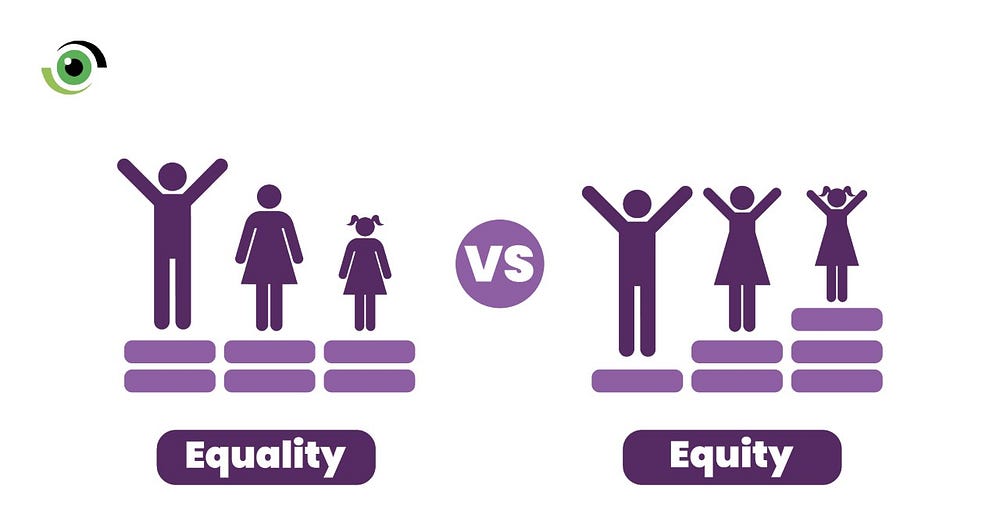
#EmbraceEquity — What it is not
On the 14th of February 2023, Vice President Yemi Osinbajo, SAN inaugurated a 25-Man Steering Committee of the National Development Plan 2021–2025 with the aim “to lay a solid foundation for a strong base that will drive an effective implementation and produce a prosperous country.” The 25-Man committee consists of the Ministers of Budget and National Planning, Power, Transportation, Industry, Trade and Investment, Health, other Ministers’ representatives as well as the Honourable Minister of Humanitarian Affairs, Disaster Management and Social Development and Permanent Secretary, Budget and National Planning (Secretary) who make-up the only women in the committee. This list includes the representatives of the Organised Private Sector (OPS), representatives of Civil Society Organisations (CSOs) and representatives of Development Partners who may or may not be women.
This is one of the many instances in Nigeria where committees and task forces are formed to address national development issues, but women are inadequately represented. The underrepresentation of women in committees like this undermines the principles of equity and inclusion, eliminates the voices of almost half of a country’s population, promotes gender disparities and completely contradicts the theme of this year’s IWD. It also sends the message that women’s voices and contributions are not valued or considered essential in matters of national development which is erroneous.
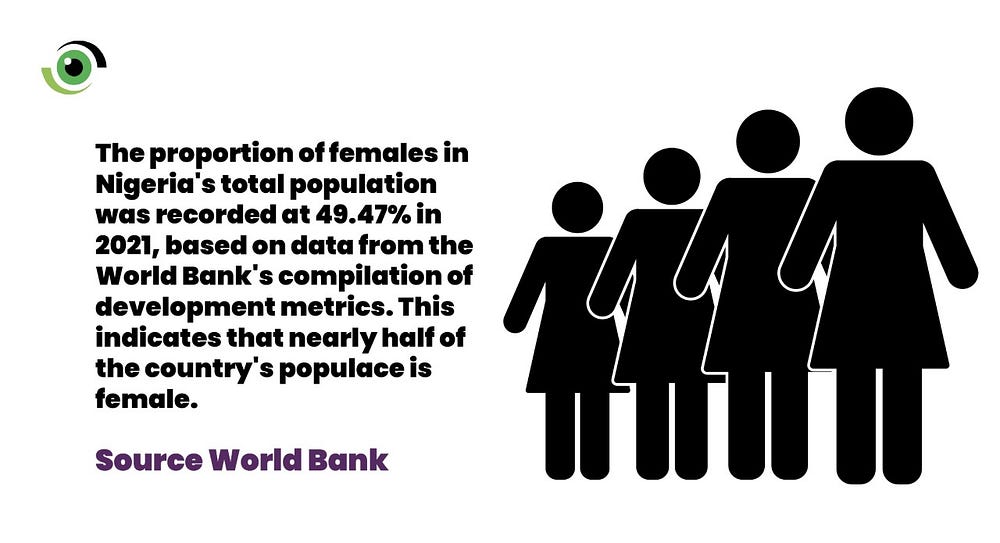
#EmbraceEquity — What it is
To embrace equity means to accept, hold close or welcome in literal terms. It also represents a concerted effort to enable social integration to create a stable, safe and just society for all. To promote an inclusive society, it is crucial to ensure that diverse voices and perspectives are represented in decision-making processes including women, youths and persons living with disabilities. However, such an inclusive society should be based on the principles of embracing — not forcing or imposing — diversity and using participatory approaches that involve all stakeholders in the decision-making that affects their lives. Such as
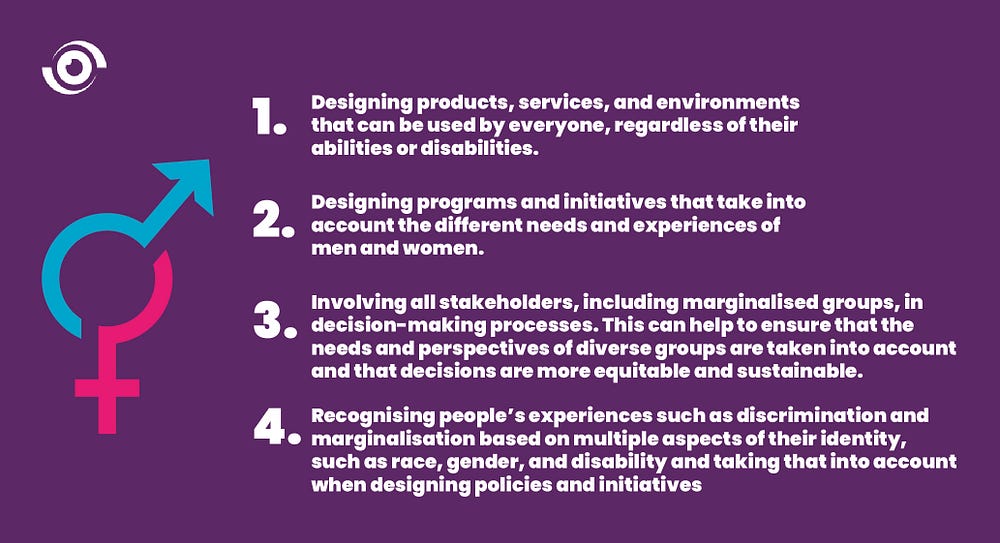
Not there yet
Gender disparities in Nigeria remain apparent across various areas, particularly in employment, maternal mortality rates, child marriage, gender-based violence and the number of women occupying appointive and elective positions within government.
A UN Women report indicates that while Nigeria has gone a long way to achieve gender equity, the country is not quite there yet. Globally, it could take up to 286 years to achieve gender equality based on the current pace, yet it feels like only yesterday when Nigerians took to the streets to protest the rejection of five gender bills . Although the National Assembly suspended their extant rules to rescind the decision in respect of three of the bills, a recollection of this decision raises concerns given that Nigeria has a gender gap of 63.9% to fill.

Let’s #EmbraceEquity Together!
The 2023 IWD theme provides an opportunity to reflect on how we can #EmbraceEquity in our everyday lives. It is essential to take deliberate actions to promote gender equity and inclusion in all spheres of society, including ensuring significant women representation in committees and taskforces that allow them to contribute their voices to national development.
Equity is a must-have for the progress of any society, and everyone has a part to play when it comes to advancing equity. So, more than just tweeting or retweeting #EmbraceEquity today, let us all make a conscious decision to embody inclusion in our various activities by boldly calling out negative stereotypes in our individual spaces.
For Nigeria, there is still a long way to go, and there is a need for continued efforts to address the underlying factors that contribute to inequity in the country such as discriminatory laws, religious and cultural practices, gender stereotypes and low levels of female education. Ultimately, achieving gender equity requires a concerted effort from all sectors of society, including government, civil society, the private sector, and individuals. Only by working together can we create a more equitable and just society for all.
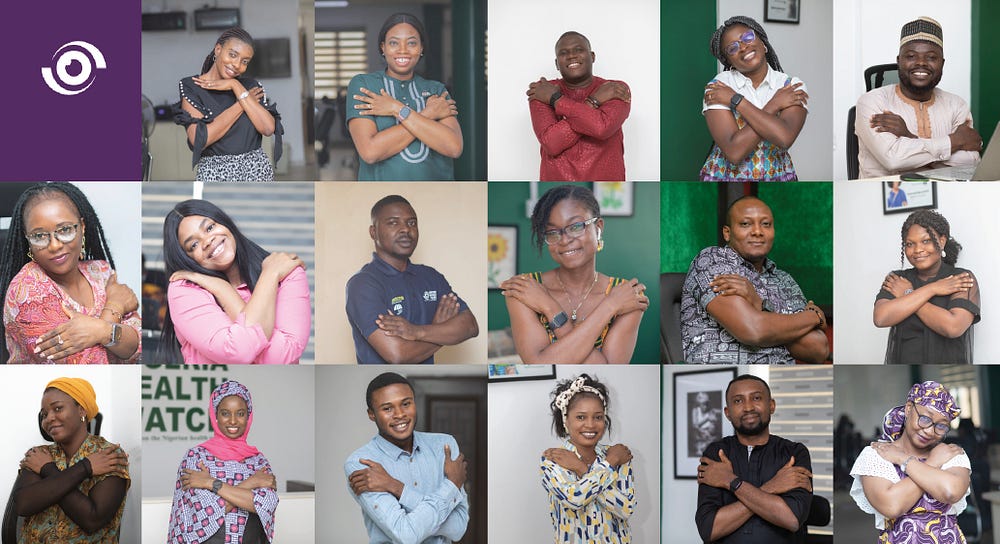
Happy International Women’s Day Nigeria! Let us know in the comments how you are consciously seeking out inclusion this IWD.


